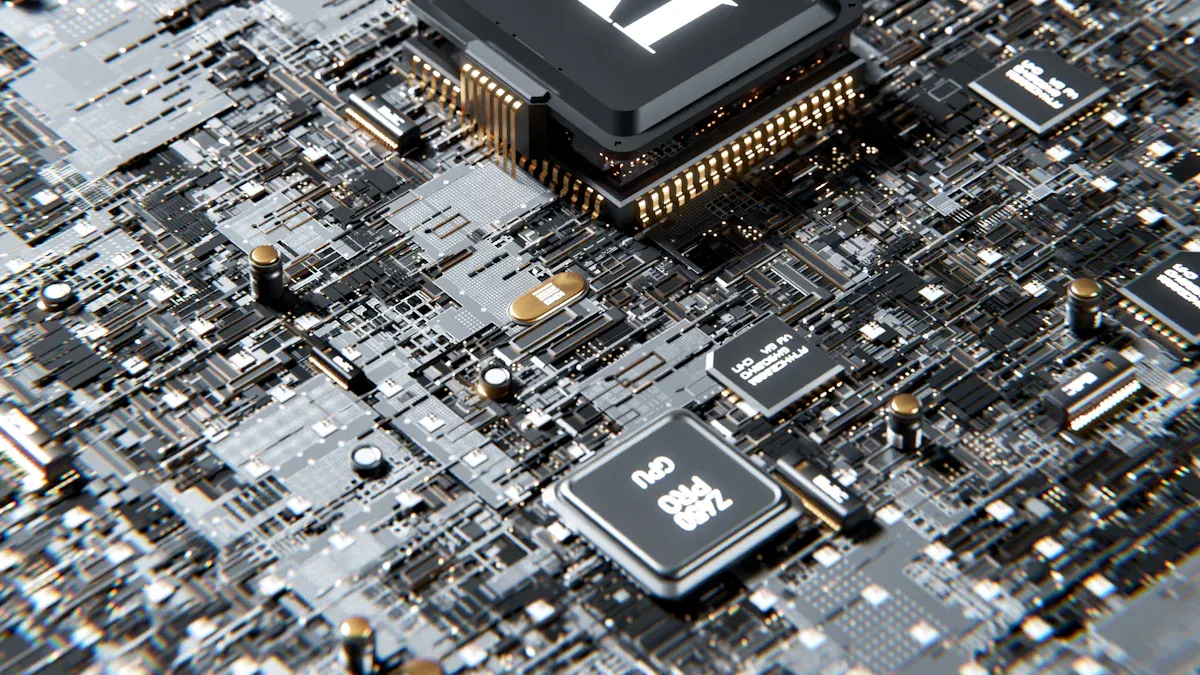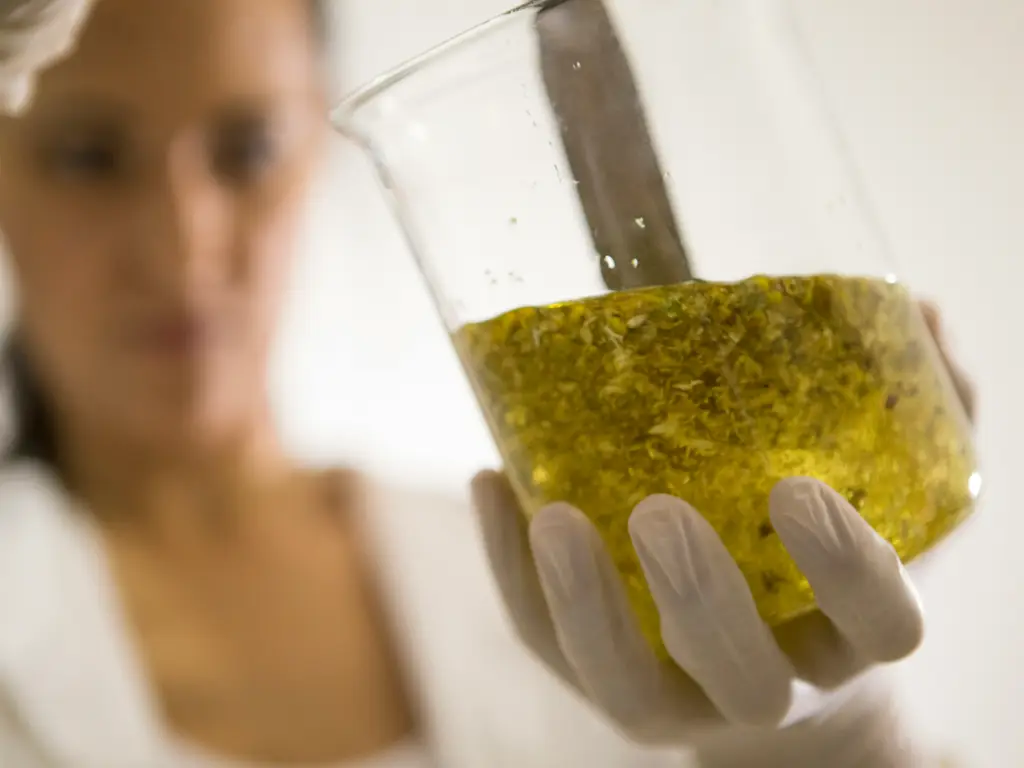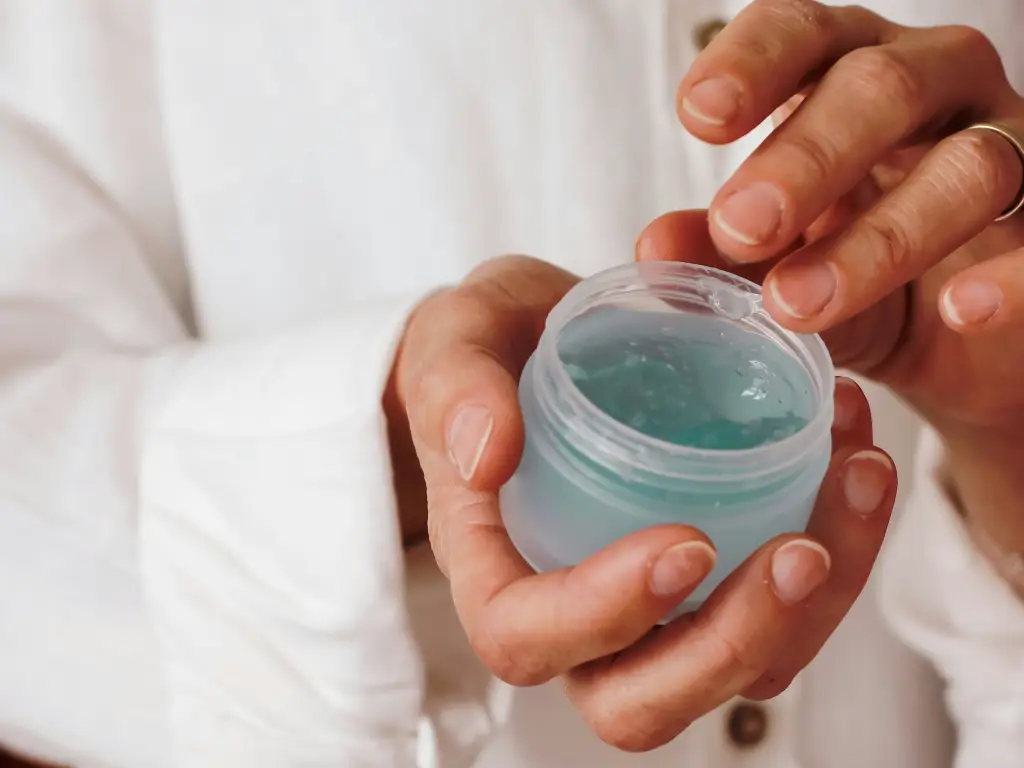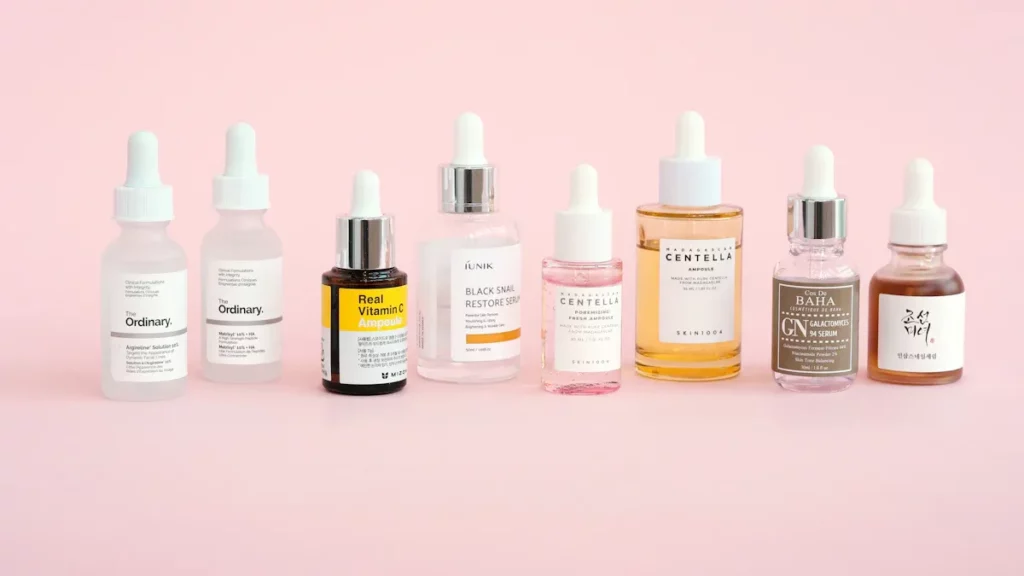
The impact of AI is revolutionizing the beauty industry, changing the way you experience products and services. It drives innovation, efficiency, and sustainability in manufacturing and development. Here’s how the impact of AI is making a difference:
Beauty brands using AI have reduced development cycles by up to 60%.
Predictive modeling achieves 92% accuracy in formula stability, cutting R&D costs by 30%.
First-round formulation success has tripled, making production faster and more reliable.
By empowering brands to innovate smarter and deliver faster, the impact of AI adapts to your evolving needs while minimizing environmental impact.
The Impact of AI on Product Development

Ingredient Discovery and Innovation
AI has revolutionized ingredient discovery in the beauty industry, making the process faster and more efficient. Instead of spending years researching new ingredients, you can now rely on AI to analyze scientific literature and predict ingredient efficacy within months. This approach not only accelerates product development but also ensures that the ingredients chosen are backed by data.
AI-powered digital human skin models have further enhanced this process. These models simulate how ingredients interact with the skin, improving the accuracy of preclinical testing. By reducing the need for extensive physical trials, you can save costs while ensuring your products meet high standards of safety and effectiveness. This innovation has transformed how brands approach ingredient selection, paving the way for more advanced and reliable formulations.
Formulation Optimization for Enhanced Efficacy
Creating effective beauty products often involves trial and error, but AI has minimized this challenge. AI-driven formulation tools analyze vast datasets to identify the best combinations of ingredients for specific outcomes. This reduces the time and resources needed for experimentation, allowing you to bring products to market more quickly.
AI-powered formulations also ensure consistency across batches. By monitoring variables like temperature, pH, and ingredient ratios, AI helps maintain the quality of each product. This level of precision not only enhances the efficacy of your formulations but also builds trust with your customers. Additionally, AI optimizes clinical testing by selecting the right participants and designing more accurate trials, further improving the reliability of your products.
Generative AI in Creative Product Design
Generative AI has unlocked new possibilities in creative product design. By analyzing trends and consumer preferences, it helps you develop innovative products that resonate with your audience. For example, generative AI can suggest unique packaging designs or new product concepts, ensuring your brand stays ahead of the curve.
The success of generative AI in beauty manufacturing is evident in its impressive metrics. With a user satisfaction rate of 95% and a Structural Similarity Index (SSIM) score of 0.92, generative AI delivers designs that align closely with consumer expectations. Its model accuracy of 93% and loss reduction of 0.07 further highlight its reliability. By leveraging this technology, you can create products that stand out in a competitive market while meeting the evolving needs of your customers.
AI Skincare and Personalized Customer Experiences

Virtual Try-Ons and Augmented Reality Tools
AI has transformed how you explore skincare products by introducing virtual try-ons and augmented reality (AR) tools. These technologies allow you to visualize how products will look or feel on your skin before making a purchase. For instance, AR-powered virtual mirrors enable you to test different skincare products or makeup shades in real time, eliminating the need for physical samples. This not only enhances your shopping experience but also supports sustainability by reducing waste.
The impact of AI in this area is evident in consumer behavior. Studies show that 59% of customers are more likely to buy products they have visualized through AR technology. Additionally, 60% of younger consumers believe brands should integrate AR and VR into their platforms, highlighting the growing demand for immersive experiences in the beauty industry. By leveraging these tools, brands can foster trust and improve conversion rates, making your skincare journey more engaging and efficient.
AI Skincare Analysis for Tailored Recommendations
AI skincare analysis has redefined how you receive personalized skincare recommendations. By analyzing your skin type, concerns, and environmental factors, AI-powered tools can suggest products that cater specifically to your needs. These tools use advanced algorithms to assess your skin’s unique profile, ensuring that the recommendations are both accurate and effective.
For example, diagnostic apps powered by AI can identify issues like dryness, acne, or sensitivity and provide tailored insights. This level of customization helps you choose products that align with your skincare goals. Leading brands have adopted AI-driven diagnostics to enhance customer trust and engagement, proving the effectiveness of this approach.
Evidence Description | Source Link |
|---|---|
AI enables personalized formulations based on individual skin profiles, improving recommendations. | |
AI-powered diagnostic apps analyze skin issues, providing tailored insights for consumers. | |
AI algorithms optimize skincare formulas, ensuring they are personalized and effective. |
This innovation ensures that your skincare routine is not only effective but also aligned with your specific needs, paving the way for the future of skincare.
Diagnostics and Real-Time Skin Condition Monitoring
AI has introduced real-time skin condition monitoring, allowing you to track changes in your skin’s health and adjust your routine accordingly. Advanced AI tools provide detailed skin analysis, identifying trouble spots and offering targeted treatment options. These tools can even integrate with wearable devices to monitor hydration levels, oil production, and UV exposure, giving you a comprehensive view of your skin’s condition.
Metric | Advantage |
|---|---|
Detailed Skin Analysis | Provides a comprehensive assessment of skin attributes, identifying trouble spots for targeted treatments. |
Real-time Insights | Enables tracking of skin health changes, allowing for timely adjustments to skincare routines. |
Integration with Wearables | Facilitates continuous monitoring of hydration, oil production, and UV exposure for personalized recommendations. |
The integration of AI with biometric sensors enhances your ability to maintain healthy skin. Immediate feedback from these tools helps you make informed decisions about your skincare routine. This level of personalization ensures that your skincare products deliver optimal results, making AI an essential part of the future of skincare.
AI’s Role in Promoting Sustainability
Reducing Waste in Manufacturing Processes
AI has transformed waste reduction strategies in the beauty industry, helping you minimize material waste while boosting profitability. By optimizing processes and improving inventory management, AI ensures that manufacturing becomes more efficient and sustainable.
AI-powered systems predict demand accurately, reducing overproduction and waste.
Digital Twins simulate and optimize processes without disrupting production lines.
Vision systems detect defects with precision, lowering the production of faulty items.
Energy management tools reduce consumption, cutting energy costs by up to 20%.
The beauty industry contributes significantly to global material waste, which accounts for 40% of the warming potential. AI addresses this challenge by reducing waste and unlocking a $4 trillion market opportunity. With AI, you can embrace sustainability initiatives while improving operational efficiency.
Ethical Sourcing and Transparent Supply Chains
AI empowers you to build ethical supply chains that foster trust and transparency. Ingredient traceability ensures compliance with regulations and promotes fair trade practices. Advanced tools allow you to share detailed information about ingredient origins and cultivation methods, enhancing your brand’s storytelling.
Blockchain technologies and Digital Product Passports provide real-time traceability.
Transparency in ingredient sourcing appeals to 86% of shoppers who want more information about product origins.
Strong relationships with ethical suppliers ensure fair trade and sustainable practices.
Consumers increasingly demand transparency in the beauty industry. Nearly 98% consider ingredient transparency a key factor in their buying decisions, and 65% would switch brands for better supply chain communication. By adopting AI-driven tools, you can meet these expectations and retain customer loyalty.
Advancing Clean and Green Beauty Practices
AI supports the shift toward clean and green beauty by enabling smarter product development and formulation optimization. Younger generations, including 90% of Gen Z and millennials, show a strong interest in clean beauty products. AI helps you cater to this demand by creating formulations with fewer, more effective ingredients.
64% of skincare users prefer minimalistic products that deliver results.
AI-driven tools analyze ingredient efficacy, ensuring formulations align with sustainability goals.
The impact of AI on clean beauty practices is undeniable. By leveraging AI, you can innovate responsibly, meet consumer expectations, and contribute to a greener future for the beauty industry.
Operational Efficiencies Enabled by AI
Supply Chain Optimization and Cost Reduction
AI-driven solutions have transformed supply chain management, enabling you to reduce costs and improve efficiency. By automating repetitive tasks like inventory tracking, AI lowers labor expenses while enhancing accuracy. Machine learning models suggest optimal routes for inventory movement, increasing fulfillment rates and minimizing delays.
AI also optimizes warehouse layouts and racking systems, ensuring better use of space and faster access to products. These improvements streamline operations and reduce logistics expenses by up to 15%, as reported by McKinsey. Additionally, AI identifies bottlenecks in the supply chain and learns from inefficiencies to refine processes further.
📊 Cost-Benefit Analysis of AI in Supply Chain Management
Source
Findings
McKinsey
AI lowers logistics expenses by 15%.
By adopting AI-driven solutions, you can balance inventory against carrying costs while maintaining a seamless supply chain.
Predictive Analytics for Demand Forecasting
AI-powered predictive analytics revolutionize demand forecasting, helping you anticipate customer needs with greater accuracy. Precise forecasts minimize inventory costs by 20% to 50%, reducing waste and ensuring smoother operations.
AI analyzes historical data and market trends to predict demand fluctuations, allowing you to adjust production schedules accordingly. This proactive approach prevents overproduction and stockouts, ensuring your products remain available when customers need them.
🔍 Tip: Accurate demand forecasting not only reduces costs but also enhances customer satisfaction by ensuring timely product availability.
By leveraging AI, you can align production with market demand, improving efficiency and profitability.
Streamlining Production Timelines and Scalability
AI simplifies production timelines and enhances scalability, enabling you to meet growing consumer demands without compromising quality. AI tools identify specific business problems and quantify expected impacts, ensuring production aligns with your goals.
Pilots validate AI models in real-world conditions, achieving target KPIs and streamlining processes. These systems track key performance indicators to assess business outcomes, ensuring continuous improvement. AI also optimizes formulation development, reducing time-to-market for new products.
🚀 AI in Production Success:
Validates models through pilot programs.
Tracks KPIs to measure business outcomes.
By integrating AI into your production processes, you can scale operations efficiently while maintaining high standards of quality and consistency.
Challenges and Limitations of AI in Beauty
Data Quality and Privacy Concerns
The success of artificial intelligence in beauty manufacturing depends heavily on the quality of data it processes. Traditional methods for assessing data quality, such as accuracy and completeness, often fall short for AI applications. These systems require more nuanced measures to ensure reliable outcomes. When AI relies on biased or incomplete data, it can produce skewed results. For example, facial recognition software has faced criticism for misidentifying people of color, highlighting the risks of biased datasets.
Data privacy is another significant challenge. Companies must navigate strict regulations like GDPR to avoid severe penalties. A global e-commerce company recently faced a €20 million fine for improper data storage, showcasing the high stakes of non-compliance. Additionally, the rising costs of cybercrime, projected to reach $10.5 trillion annually by 2025, emphasize the financial risks tied to data breaches. These concerns may slow the adoption of artificial intelligence in the beauty industry, as brands work to balance innovation with regulatory compliance.
Financial Investment and Accessibility Barriers
Implementing artificial intelligence in beauty manufacturing requires substantial financial resources. High initial costs for technology development and integration often deter smaller brands. Many of these companies lack the specialized expertise needed to incorporate AI into their existing systems. This creates a significant barrier to entry, limiting their ability to compete with larger, more established brands.
These financial and technical challenges not only stifle innovation but also widen the gap between small and large players in the market. For smaller brands, the cost of adopting artificial intelligence can outweigh the potential benefits, making it difficult to justify the investment. As a result, accessibility remains a critical issue that the industry must address to ensure fair competition and widespread adoption.
Balancing Automation with Human Creativity
While artificial intelligence excels at automating repetitive tasks, it cannot replace human creativity. Many consumers prefer AI to assist rather than take over decision-making. As Tim Huelskamp, CEO of 1440, explains, “Consumers don’t want AI to replace human experiences. They want AI to filter out noise, not make decisions for them.” This sentiment reflects the need for a balanced approach in beauty manufacturing.
A survey by Kantar revealed that marketers rated their AI readiness at an average of 4.9 out of 10, with agencies scoring slightly higher at 5.3. These numbers indicate a general feeling of unpreparedness in the industry. While artificial intelligence can streamline processes and enhance efficiency, it must work alongside human creativity to deliver products that resonate with consumers. Striking this balance is essential for maintaining authenticity and innovation in the beauty sector.
AI is transforming beauty manufacturing by driving innovation, sustainability, and efficiency. It predicts trends, optimizes ingredients, and enhances product development. You can see its impact in waste reduction, eco-friendly alternatives, and streamlined supply chains.
Area of Transformation | Key Insights |
|---|---|
Innovation | AI predicts trends, optimizes ingredients, and enhances product development. |
Sustainability | AI reduces waste, optimizes supply chains, and identifies eco-friendly alternatives. |
Efficiency | AI improves inventory management and operational processes, ensuring better customer experiences. |
Companies like Oully exemplify how AI-driven solutions help brands bring their vision to life responsibly. By embracing AI, you can align with consumer demands and shape a sustainable future for beauty.
FAQ
What role does AI play in ingredient discovery?
AI accelerates ingredient discovery by analyzing scientific data and predicting ingredient efficacy. It identifies innovative components faster than traditional methods. This ensures that your products use effective and safe ingredients, reducing the time needed for research and development.
How does AI improve product formulation?
AI enhances formulation by analyzing ingredient combinations for optimal results. It ensures consistency across batches and minimizes errors during production. This allows you to create high-quality products that meet customer expectations while reducing waste and costs.
Can AI help with sustainable beauty practices?
Yes, AI supports sustainability by optimizing manufacturing processes and reducing waste. It also aids in ethical ingredient discovery and transparent supply chains. These advancements help you align with eco-friendly practices and meet consumer demands for green beauty products.
How does AI personalize skincare recommendations?
AI analyzes your skin type, concerns, and environmental factors to provide tailored product suggestions. It uses advanced algorithms to ensure accurate recommendations. This personalized approach improves your skincare routine and enhances product effectiveness.
Is AI reliable for creative product design?
AI is highly reliable for creative tasks like packaging design and product innovation. It analyzes trends and consumer preferences to suggest ideas that resonate with your audience. This ensures your brand stays competitive and meets market demands.
















